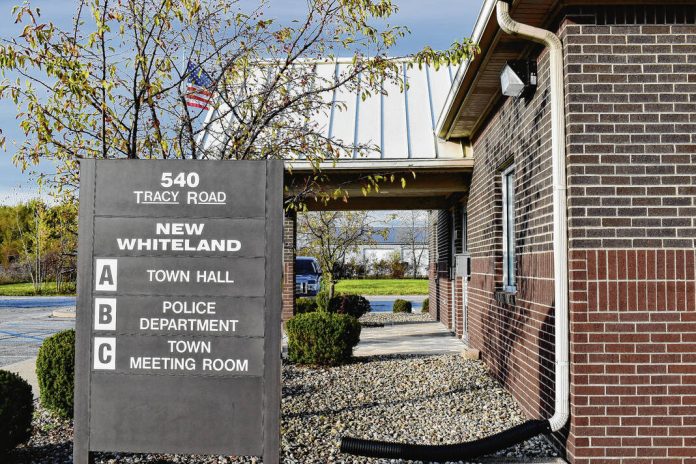All full-time town employees in New Whiteland will receive longevity pay beginning this year.
New Whiteland has been debating the issue for months after Police Chief Joe Rynerson expressed concerns over officer retention. The council wanted to help, but it took time to land on the amount of longevity pay, how to distribute it and who could earn it.
Town council members voted 4-0 to approve a plan that would give all full-time town employees longevity pay at a special meeting on Wednesday. Elected officials would not receive longevity pay.
Employees within their first four years will receive $500 every year, while employees within five to 10 years will receive $1000. Employees would get $1,500 every year after 10 years they are employed with the town. The longevity pay will work like a bonus and employees will receive the money each December.
Conversations first began in October 2023 when officials agreed to begin providing longevity pay in December of this year. The expense was budgeted in the town’s budget for this year.
Council members were presented with different options including raising longevity pay in five-year increments, adding $100 to longevity pay every year with a cap at $1,000 and another option to cap the amount at $2,000.
Rynerson argued that New Whiteland Police needed it because the department doesn’t have perks such as a SWAT Team or drones that would attract younger officers and that a higher longevity pay was needed, but not $1,000 across the board.
“I had to get the bells and whistles so to speak, or the perks that keep these guys here because I don’t have those other amenities,” Rynerson said.
Council member John Schilawski suggested $1,000 across the board every year to all 19 employees.
“Yes, some of the old ones are subsidizing with the younger ones, but isn’t that our hope is to get those younger ones to the ten-year mark?” Schilawski said.
Council member John Purdie argued that employees who have been with the town for more than 20 years deserve a higher standard of compensation.
With some of the options, people who need to be targeted for retention are not getting enough longevity pay for them to stay, Schilawski said. Eleven people, or more than half of the town’s employees, are within their first five years of employment and would ultimately receive more, Schilawski said. Three employees have been with the town longer than 20 years.
Rynerson said $1,000 a year across the board is a good idea, but questioned where they would cap the number of years.
Council member John Perrin suggested finding a compromise between years one through five.
Street Superintendent Duane McCauslin suggested keeping the $1,000 a year for years one through 10 and $1500 for every year after a decade with no cap. This model would keep the town within its budget and compromise with concerns that all council members had.
Perrin and Schilawski agreed that the model would give incentives for both new employees to stay and thanks to older employees for staying.
“I can live with that,” Schilawski said. “Because the younger ones are getting an incentive … The older ones can say ‘Yeah, I’m getting an additional $500, which you know, $500 makes a difference.”
After adding up the total, officials found the suggested model was just slightly over budget. Clerk-Treasurer Angela DeVoss suggested changing the first five years to $500 to compensate for the budget.
Council members agreed that the model was fair and enticing for everyone.
At the end of the process, Schilawski said it was a “great display of democracy.”





